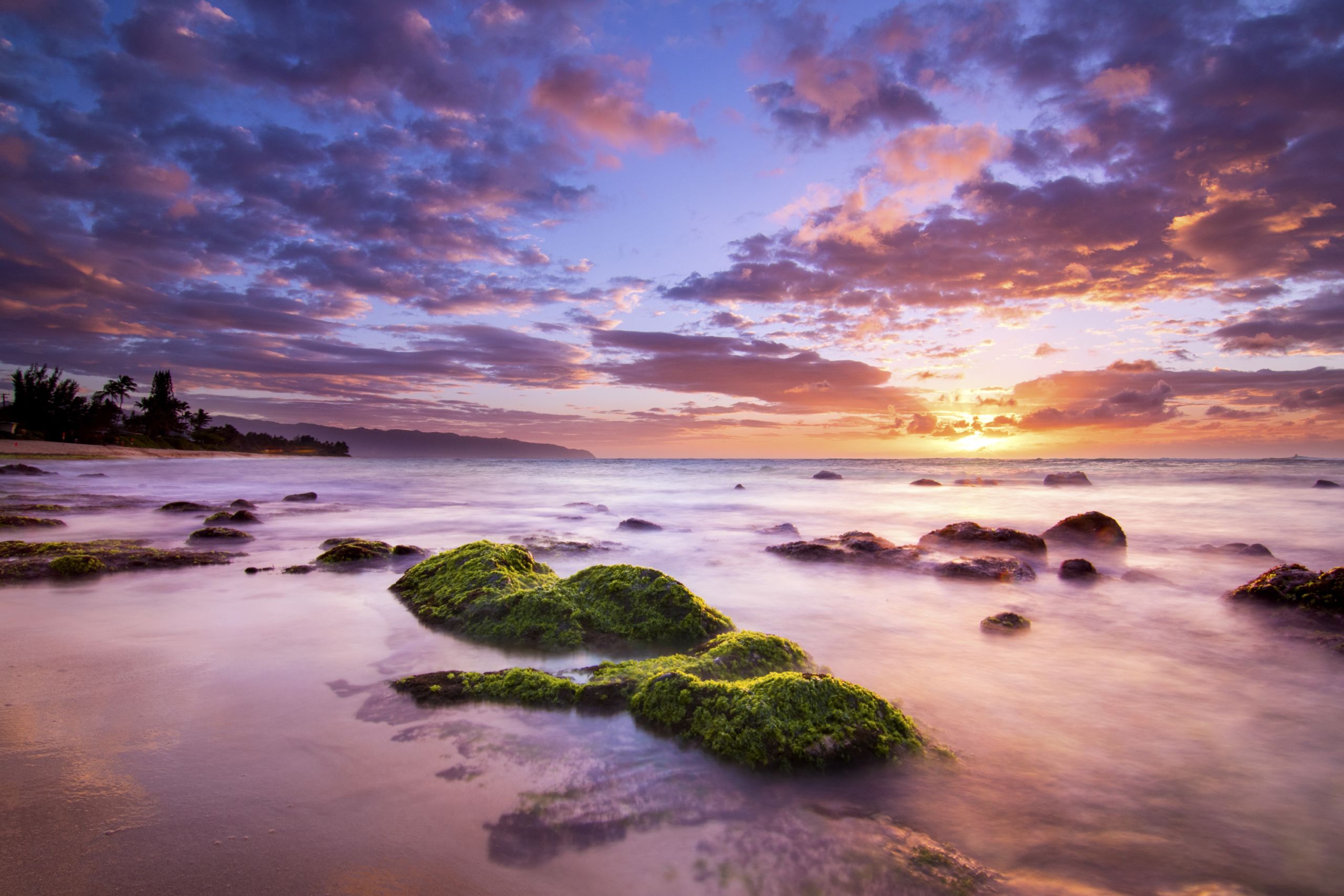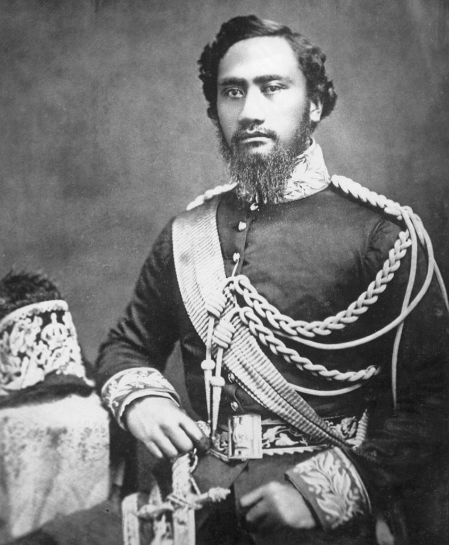He Mau Leo Aloha
Ka Nupepa Kuokoa, Volume III, Number 4, 23 January 1864

He Mau Leo Aloha
Loving Voices
*English below each paragraph in ʻōlelo Hawaiʻi
Ma ka pō iho nei o ka Poʻahā, ua hōʻike ʻia aku nā poʻe hīmeni a me nā poʻe mele kanikau no ka Mōʻī Aloha ʻIolani i hala aku nei. Ma ke alo ponoʻī iho o Hale Aliʻi kahi i haiamū ai ʻo ka poʻe olioli, a me ka poʻe mele i nā hīmeni. ʻO ka poʻe wale nō o ko Ka Mea Kiʻekiʻe Kanīnaulani alo, a me ko Ka Mea Hanohano M. Kekūanāoʻa, kai komo i loko o ia kau o ke kūmākena ʻana. A ʻo nā kanikau i haku ʻia e Ka Mea Kiʻekiʻe Kanīnaulani, ʻo ia nā mele i hīmeni ʻia, a ʻo ke mele kanikau a ka Mōʻī Kamehameha V, Ka Mea Kiʻekiʻe Kamāmalu, a me kā ka Mōʻīwahine ʻEmalani, kai mele olioli ʻia ma ia pō.
Last Thursday night, singers and lamenters were presented for the the beloved King ʻIolani who has recently passed. Chanters and singers crowded the front of the palace. Only those in the retinue of Her Highness Kanīnaulani, and those of His Highness M. Kekūanāoʻa entered during this time of grief. Dirges composed by Her Highness Kanīnaulani were sung too, and laments composed by King Kamehameha V, Her Highness Kamāmalu, and Queen Emma were chanted that night as well.

Alexander ʻIolani Liholiho, Kamehameha IV
He nui wale nō ka poʻe i hele aʻe o ke alo aliʻi, a ua kū nō nā huaʻōlelo i ke aloha, a me he mea lā, ua hiki ʻole i kekahi ke hoʻolohe ia mau leo hoʻālohaloha, me ka hoʻonāueue ʻole ʻia o ka pouhana o ko lākou mau luna manaʻo. No ka mea, ua hoʻokaʻakukua ʻia ko mākou mau puʻuwai e ke aloha, i ka hoʻolohe aku i nā leo hoʻālohaloha e kiola ʻia aku ana i luna o ka Mōʻī Aloha i naue aku nei. Me he mea lā, ʻo ka Lani Kiʻekiʻe kekahi i komo i loko o ia aloha ʻana, no ka mea, ua kiola mai ka mahina i kon[a] lilelile nui i luna o ka ʻili honua, a ʻo nā ao pōluluhi hoʻi e hoʻohehelo ana ma ke alo o ka lani, ua uai aʻe ʻia lākou mai ke alo aʻe o ka mahina, o ʻālai auaneʻi lākou i ke ʻōlinolino a ka mahina i manaʻo ai e hoʻokau mai i luna o ke anaina uē mākena e haiamū ana ma Hale Aliʻi ʻIolani.
Many members of the royal court attended, and every word uttered was loving, such that no one could listen to these expressions without being shaken to the very core of their being. Our hearts reeled as we listened to the grieving voices being poured out upon the beloved king who has gone on. The heavenly one seemed to join in on this grief as well, as the moon laid out its brilliance on the earth, and the heavy clouds that decorated the sky moved away from the moon, lest they block the radiance it sought to place upon the grieving crowd gathered at ʻIolani Palace.
Eia hoʻi kekahi mea aloha nui ʻia, ʻo ke kaikuahine aliʻi o ua ʻo Kalanikualiholiho, i ke mele mai i ke kanikau o kona kuaʻana i hala akula. Ua hoʻohāliu like ʻia nā kiʻiʻōnohi o ka poʻe a pau i ona lā, a ua puia ka poʻe a pau i ke aloha menemene i kona hīmeni mai i ke kūmākena kūkonukonu no kona kaikunāne lani, i ʻako ʻia aʻe nei, mai waenakonu o kēia ola ʻana. Ua ʻikea iho nō hoʻi, ʻo nā mele a me nā hīmeni i haku ʻia, a i oli ʻia, ua hoʻokawowo ʻia, ma ke kīhāpai o ke aloha ʻoiaʻiʻo—he mau ʻōlelo hiki ʻole ke kono ʻia e ka puʻuwai i ʻike ʻole i ke aloha, a ua maopopo nō hoʻi, he mau hua ʻōlelo i koi ʻia e ka puʻuwai i hele a mokumokuāhua i ke aloha o nā aloha.
A really touching thing was the royal sister of our Kalanikualiholiho, singing a chant of lament for her deceased elder sibling. The attentions of all were upon her, everyone enveloped in intense sorrow as she sang of the extreme grief she felt for her royal brother, who had been plucked away in the prime of his life. It was known that the songs and hymns composed and chanted sprouted forth in a garden of true love--words that could not have been brought on by a heart that has not known love, and it was apparent that these lyrics were expressed by a heart beset with grief, born out of the most intense form of love.
Ua maikaʻi, a ua leʻa pono nō hoʻi nā mea a pau i mele ʻia e ke Aliʻi Kanīnaulani, a me nā aliʻi o kona alo aliʻi. A ua maikaʻi pū nō hoʻi ke oli ʻia ʻana o nā mele kanikau olioli. He kanawalu paha ka nui o ka poʻe olioli, akā, ua like naʻe ka leo mai ʻō a ʻō, a me he mea lā, he mau pūʻali koa i aʻo ʻia a mākaukau no ke kaua. Ma ia mea i hōʻike ʻia mai ai ka mākaukau o ka Makua Aliʻi nāna i aʻo ia poʻe.
Everything that was sung by Chiefess Kanīnaulani and the chiefs of her court was fine and reverent. The chanted laments were also admirable. There were perhaps eighty chanters, but all voices were in unison, as if they were trained warriors readied for battle. This showed the skill of the Royal Father who taught these people.
Ua hoʻomaka ka hōʻike ʻana i nā kanikau mai ka hola 7 o ke ahiahi, a ua hoʻomau aku nō a hiki i ke ao ʻana. A me he mea lā, ʻo ka poʻe a pau i lohe a i ʻike hoʻi i ke ʻano o nā mele i mele ʻia, ua hoʻi aku i ko lākou mau wahi, me ka luʻuluʻu ʻoiaʻiʻo i ke aloha, no ua lani aloha lā i hala aku nei, i ka ʻaoʻao mau o ko ke ao nei.
The presentation of dirges began at seven o’clock in the evening, and it continued until daylight. It seemed as if all those who heard and saw the kinds of poems presented, returned to their places genuinely weighed down by heartache for the beloved royal one who just passed, to the eternal realm of humankind.
Translated By Kaʻiu Damas, edited by Puakea Nogelmeier.
Click here to access the original Hawaiian article.
Visit the website of Awaiaulu to learn more about this organization.
Mahalo to Jake Marote for the opening photograph. See his work on Instagram @jake_of_all_trades and on his website.

Alexander ʻIolani Liholiho, Kamehameha IV
Alexander ʻIolani Liholiho, Kamehameha IV
